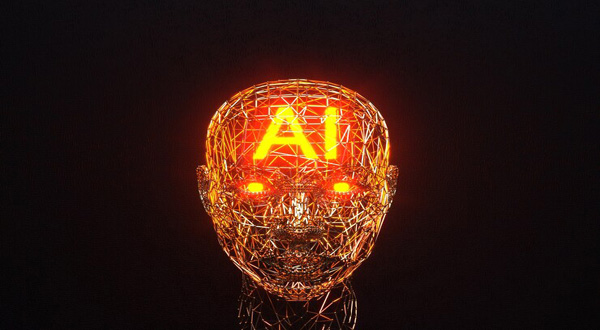What is Artificial Intelligence by Scholars?
- Update Time : Thursday, March 7, 2024
- 14 Time View

What is Artificial Intelligence by Scholars?: Unveiling the Mystery: Understanding Artificial Intelligence
Artificial Intelligence (AI) is a term that’s been making waves in conversations, news articles, and Hollywood movies. But what exactly is AI, and how does it impact our lives? Let’s embark on a journey to demystify this fascinating technology and explore its significance in today’s world.
Breaking Down Artificial Intelligence
At its core, Artificial Intelligence refers to the simulation of human intelligence in machines that are programmed to mimic human actions and thought processes. Imagine a computer system capable of learning from data, recognizing patterns, and making decisions with minimal human intervention. That’s the essence of AI.
The Evolution of AI
AI isn’t a recent innovation. Its roots trace back to the 1950s when computer scientists began exploring ways to create machines capable of intelligent behavior. Over the decades, AI has evolved from basic rule-based systems to advanced neural networks and machine learning algorithms, revolutionizing industries and reshaping the way we live and work.
Types of Artificial Intelligence
AI can be categorized into two main types: Narrow AI and General AI.
Narrow AI
Narrow AI, also known as Weak AI, is designed to perform specific tasks or solve particular problems. Examples include virtual assistants like Siri and Alexa, recommendation systems on streaming platforms, and facial recognition technology used in security systems.
General AI
General AI, or Strong AI, refers to AI systems with the ability to understand, learn, and apply knowledge across a wide range of tasks – essentially, possessing human-like intelligence. While General AI remains more of a theoretical concept, researchers continue to explore its possibilities and implications.
Applications of Artificial Intelligence
AI has permeated various aspects of our daily lives, impacting industries ranging from healthcare and finance to entertainment and transportation.
Healthcare
In healthcare, AI-powered tools are revolutionizing diagnosis, treatment planning, and drug discovery, leading to more accurate diagnoses and personalized treatment options.
Finance
In the finance sector, AI algorithms analyze vast amounts of data to detect fraudulent activities, optimize investment strategies, and provide personalized financial advice to consumers.
Entertainment
AI is reshaping the entertainment industry through personalized content recommendations, predictive analytics for audience engagement, and even the creation of AI-generated music and artworks.
Read More:What Is Artificial Intelligence Best Defined As?
Transportation
Autonomous vehicles are a prime example of AI in transportation, with companies investing heavily in developing self-driving cars and trucks to enhance safety and efficiency on the roads.
Ethical Considerations and Challenges
While the potential of AI is immense, it also raises ethical concerns and challenges that need to be addressed. From biases in AI algorithms to job displacement due to automation, society must navigate these complexities to ensure that AI benefits humanity as a whole.
Conclusion
In conclusion, Artificial Intelligence is a transformative technology with the power to revolutionize industries, enhance productivity, and improve our quality of life. By understanding its capabilities, limitations, and ethical implications, we can harness the full potential of AI for the betterment of society.
Table of Contents
| Sr | Headings |
|—–|————————————-|
| 1 | Breaking Down Artificial Intelligence |
| 2 | The Evolution of AI |
| 3 | Types of Artificial Intelligence |
| 3.1 | Narrow AI |
| 3.2 | General AI |
| 4 | Applications of Artificial Intelligence |
| 4.1 | Healthcare |
| 4.2 | Finance |
| 4.3 | Entertainment |
| 4.4 | Transportation |
| 5 | Ethical Considerations and Challenges |
| 6 | Conclusion
Read More: Unraveling the Mystery of Artificial Intelligence
|
Frequently Asked Questions (FAQs)
- What are the main types of Artificial Intelligence?
Narrow AI and General AI represent the two main types of Artificial Intelligence, each serving specific purposes and exhibiting varying levels of intelligence.
- How is Artificial Intelligence impacting the healthcare industry?
Artificial Intelligence is transforming healthcare through improved diagnostics, personalized treatment options, and more efficient drug discovery processes.
- What ethical concerns surround the use of Artificial Intelligence?
Ethical considerations in AI include issues of bias in algorithms, data privacy, job displacement, and the potential for AI to perpetuate existing societal inequalities.
- Can Artificial Intelligence achieve human-like intelligence?
While General AI aims to replicate human intelligence, achieving true human-like intelligence remains a complex and ongoing challenge for researchers in the field of Artificial Intelligence.
- How can society ensure the responsible use of Artificial Intelligence?
Society can promote the responsible use of AI through ethical guidelines, transparency in AI development and deployment, ongoing research into AI ethics, and inclusive decision-making processes involving diverse stakeholders.












